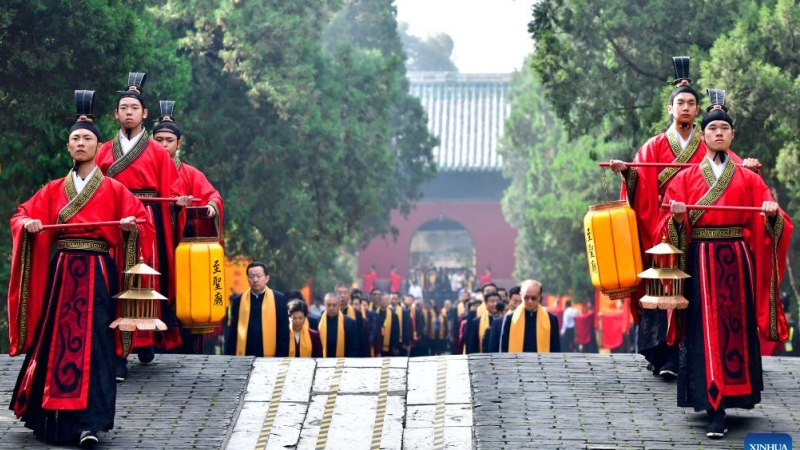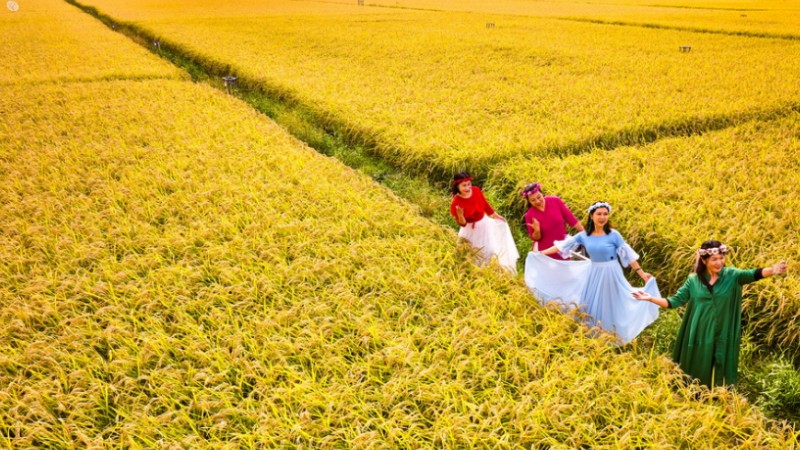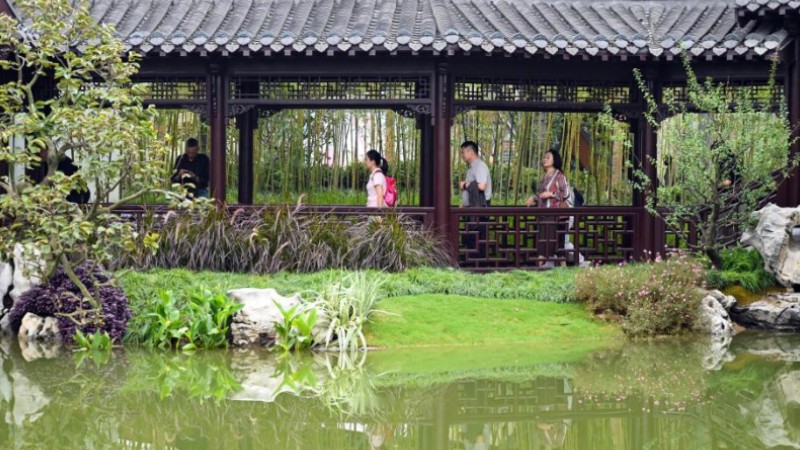Agricultural technologies enable winter jujube to grow nationwide
JINAN, Oct. 9 (Xinhua) -- Even though Sun Bingwu, 58, has tended to all of his 12 mu (about 0.8 hectares) of winter jujube trees, only a small part of his task has been completed. Sun has lots more work to do, because many orchardists in other regions are waiting for him to instruct them in the art of winter jujube planting.
Sun, who hails from Zhanhua District of Binzhou, east China's Shandong Province, is dubbed "master of winter jujube planting" by locals. As one of China's main winter jujube-producing areas, Zhanhua saw the output of winter jujube reach 315,000 tonnes in 2022. Having planted jujube for 15 years, Sun has gained much experience.
"We have recently developed an eco-friendly biological agent as replacement for agricultural chemicals," said Sun. "Many people from other provinces are interested in it."
The significant output of winter jujube in Zhanhua can be largely attributed to the fertile alkalescent lands of the Yellow River Delta, which are very suitable for growing jujube in winter. The advancement of agricultural technology means that winter jujube trees can now also adapt to the natural environment of many other places. Hence, experts like Sun have become busier as their experience is needed to guide orchardists in other regions.
"Now about 2 million mu of winter jujube is planted across China and people can spot winter jujube trees in 19 provincial-level regions, including Hainan and Xinjiang," said Yu Hongchang, director of the winter jujube research institute in Zhanhua.
The upgrading of plastic greenhouses is one of the main drivers helping winter jujube trees to flourish.
Plastic greenhouses are now integrated with technologies such as the Internet of Things, big data, and marginal calculation, while growing conditions and the growing environment can be managed via real-time monitoring. This means orchardists are able to adjust the humidity, temperature, and illumination in the greenhouse to promote the growth of winter jujubes.
Previously, people could only harvest the winter jujubes once a year and the output depended much on the climate. However, orchardists now have greater control over the growing process.
"With the help of new plastic greenhouses, winter jujubes in this area are not only harvested in winter but can be collected from May through November," said Yu. "With three more months of cooling storage, the jujubes can now be suitable for sales for over eight months."
Seeds are deemed the core chips of agriculture, and winter jujubes are no exception. In recent years, many places have sought to cultivate new varieties of winter jujube, which are better adapted to local growing conditions.
"We have cooperated with multiple universities in various areas," said Zhou Aiying, vice director of the winter jujube development center in Dali County, northwest China's Shaanxi Province. "In 2021, we developed two new varieties of winter jujube, which enriched our seed resources."
The yard of the winter jujube research institute in Zhanhua features a variety of jujube trees. "The winter jujube industry has gone through a downturn before, but such new jujube varieties inject renewed vitality into the industry," said Yu.
Many regions have gained from winter jujube planting.
The Taiping Township of Binhai New Area in Tianjin Municipality tried wheat, apples, and pears as commercial crops, but saw only a modest output. "As the lands here are mainly alkalescent, we started to plant winter jujube trees. Now we have planted 8,432 mu of winter jujubes with an output of 1,600 tonnes worth about 11 million yuan (about 1.5 million U.S. dollars)," said Xing Xue, who is in charge of the town's agriculture efforts.
Yanhu District of Yuncheng City in Shanxi Province started winter jujube planting in the 1990s. After it brought in winter jujube varieties from Zhanhua, its winter jujube industry gained pace. Now it plants over 30,000 mu of winter jujubes, worth about 200 million yuan.
Zhanhua itself has lengthened its industry chain, transforming jujube trees and its fruit into wood carvings, tea leaves and many other products. These efforts boost the value of the whole industry chain to more than 5 billion yuan.
There are many other "local experts" like Sun in Zhanhua. They unfolded a plan calling on such "local experts" to cultivate students, and currently 1,136 related experts have been cultivated.
"Now in many winter jujube-planting areas such as Zhanhua, Huanghua, and Dali, exchange channels on agricultural technology have been established," said Yu.
"The mutual learning among these regions has promoted the introduction and application of agricultural technologies involving the winter jujube," Yu added.
Photos
Related Stories
- China steps up cooperation with global research institute to enhance rice variety
- China to accelerate vitalization of seed industry
- How China's grassroots tech centers nurture agricultural innovation
- China aiming for bumper harvest despite adverse conditions
- Feature: Kenya-China agricultural cooperation aiding hunger fight, rural transformation
Copyright © 2023 People's Daily Online. All Rights Reserved.









